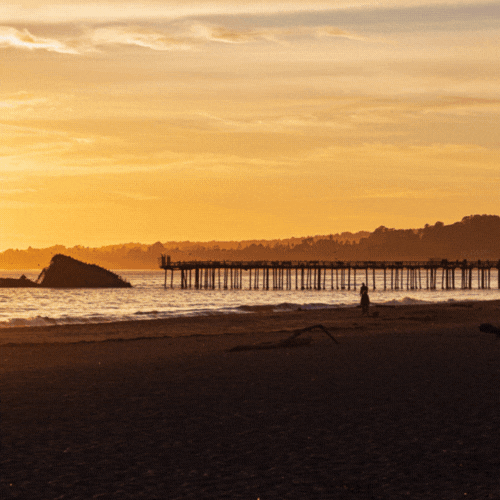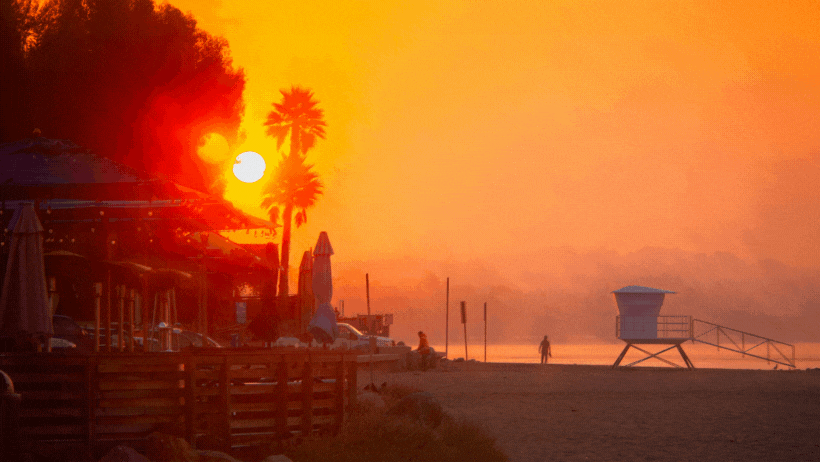
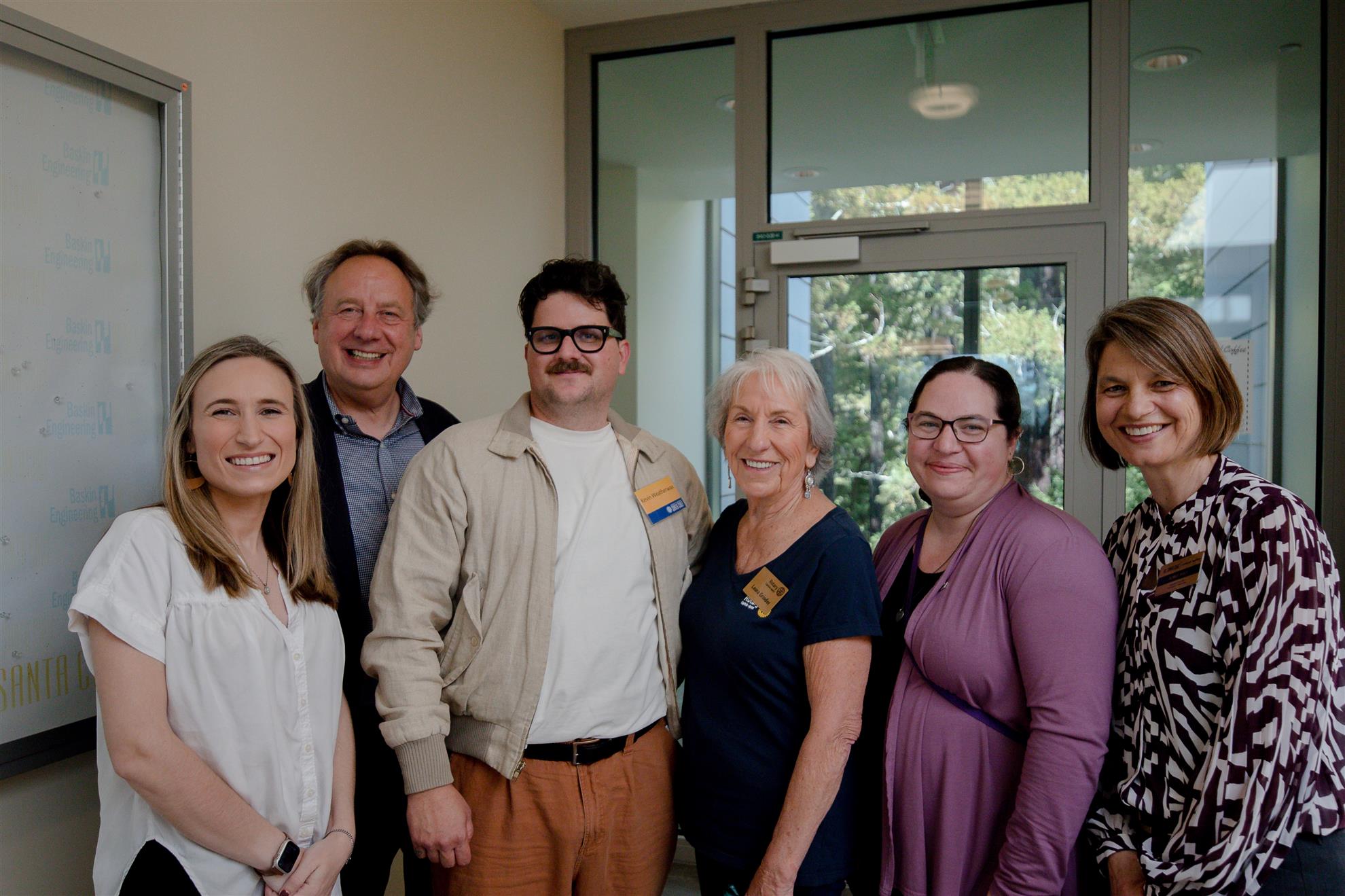
Our 3/22 meeting was a field trip to UCSC to celebrate the award of the Piatt Scholarship and honor Kevin Weatherwax, this year's recipient in the Baskin Engineering Building lab/office where he and his colleagues work.
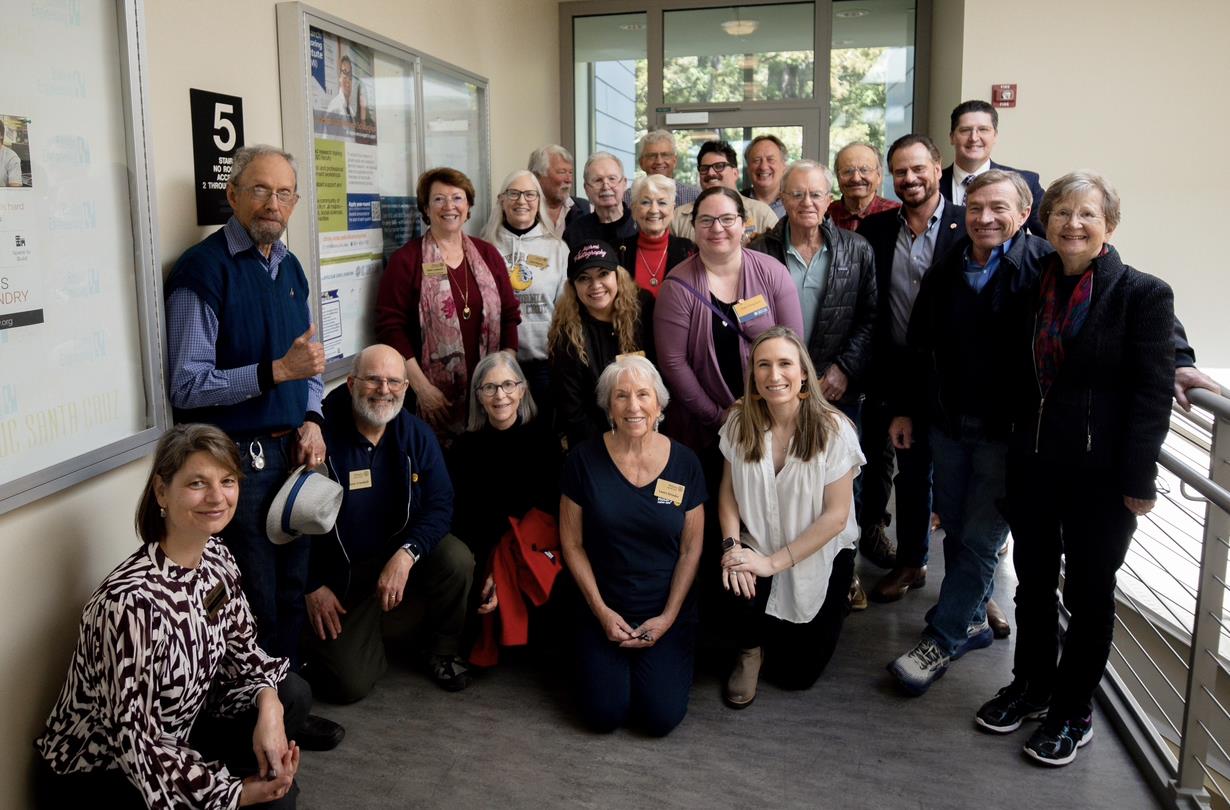
Our Rotary crew pictured with Kevin, Dean Biehl, Almut, Kevin's Mentor Kate Ringland, and the other UCSC Foundation staff
We had about 22 club attendees in person Sue on Zoom and about 8 folks from UCSC.
We were hosted by Graduate School Dean Dr. Peter Biehl and Almut Wulf (who both visited us last year for the presentation) and Advising Professor Kate Ringland.
One of our guides/chaperones/bouncers (needed as Al was in attendance today) was Alexandria Leckliter who was in RotarAct and, as importantly, her dad was a gymnastics coach.
Special memories for Trish who is a UCSC alum.
Parking was like Scouts on a scavenger hunt though we were eventually directed to the Core 4 parking garage where Almut had reserved spots for us. Found out the hard way that the parking lots identified on the on-line maps as "no-permit required" are only "no-permit required" after 4pm....
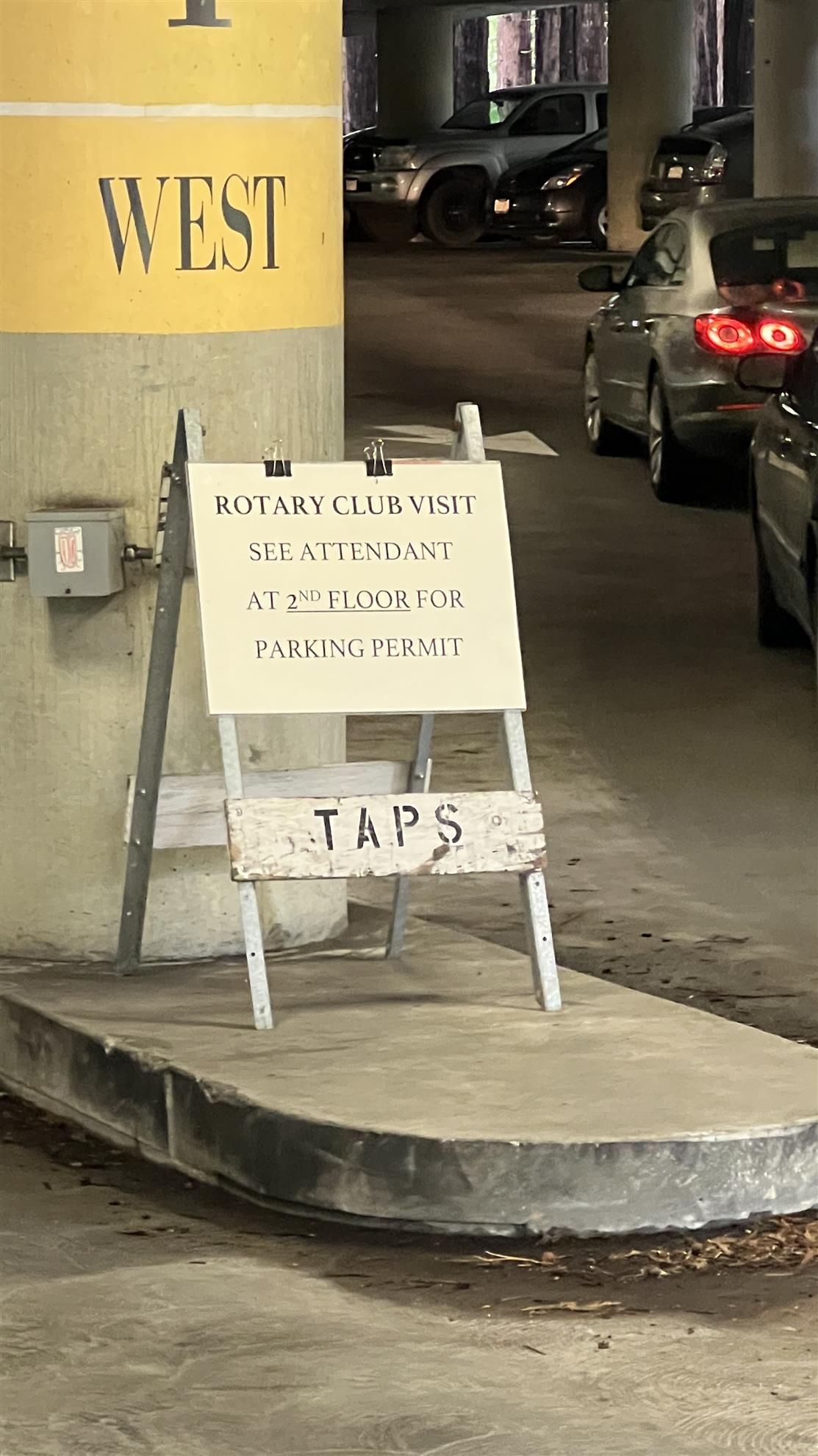
Once we navigated our way (or were rescued) we were led to the lab where Kevin and some of the other students who work in his department gave summaries of their projects aimed at assisting neurodivergent people. They call their workplace "the Misfit Lab." It was clear from just the brief statements the younger students gave that they were brilliant but they managed to translate the techno-lingo so we could understand it.
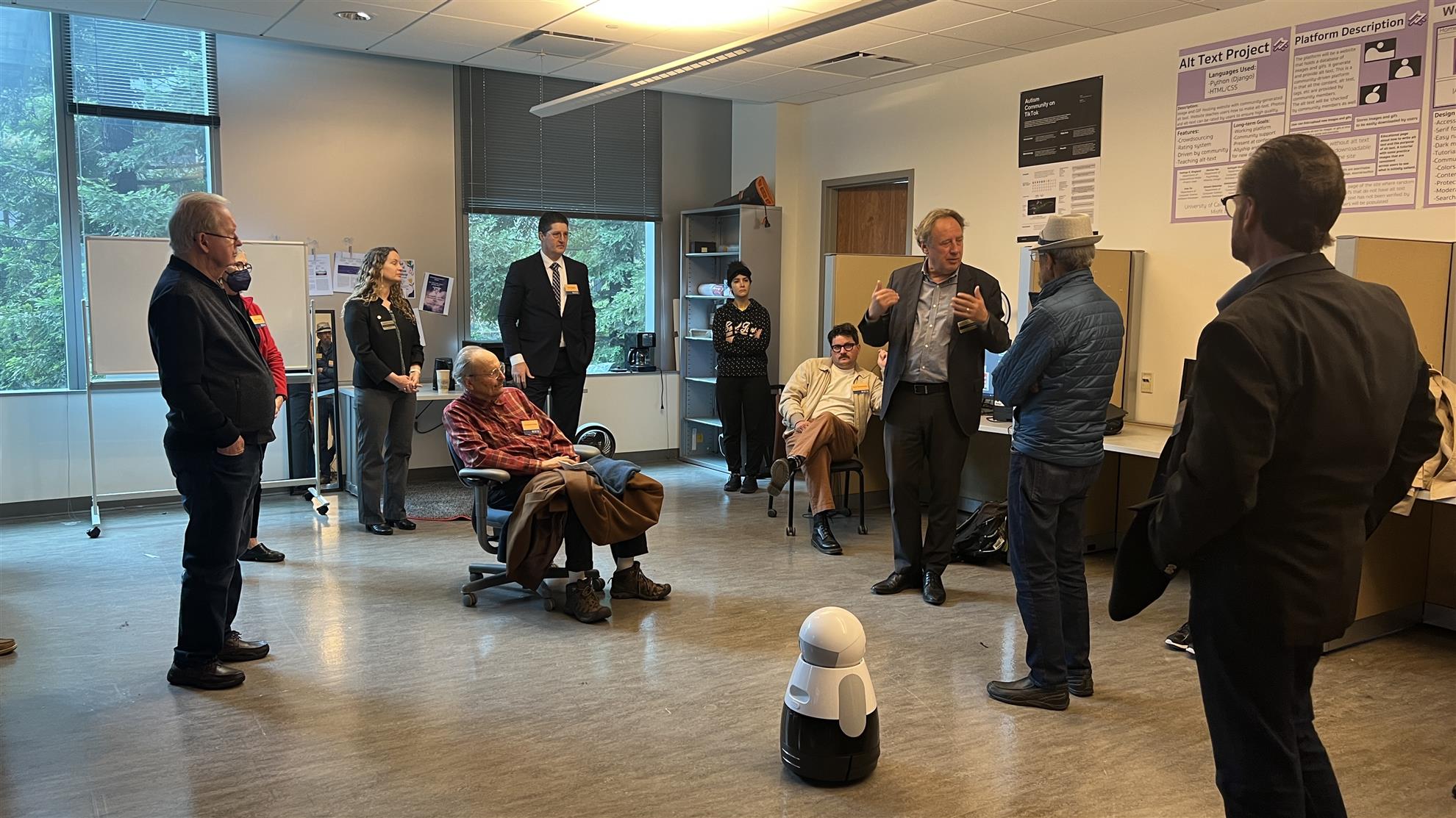
Perhaps the most discussed subject was the 2 foot high robot in the room who looks like a non-flying version of EVA from Wall-e. We were also continually scanned and colorized images of us projected onto a screen as part of the team's ongoing studies of human movement that is being used to help robots interact with humans in public. We were assured that our DNA was not being replicated for insertion into our roboticized replacement clones.
There was a keyboard for Al and Sam brought his ukelele and led us in the Welcome Song and the 4 Way test song. The UCSC folks all said they loved the music. They were not just being polite.
After the lab visit we were served a catered buffet lunch upstairs in a nice conference room with a view over the buildings and forests.
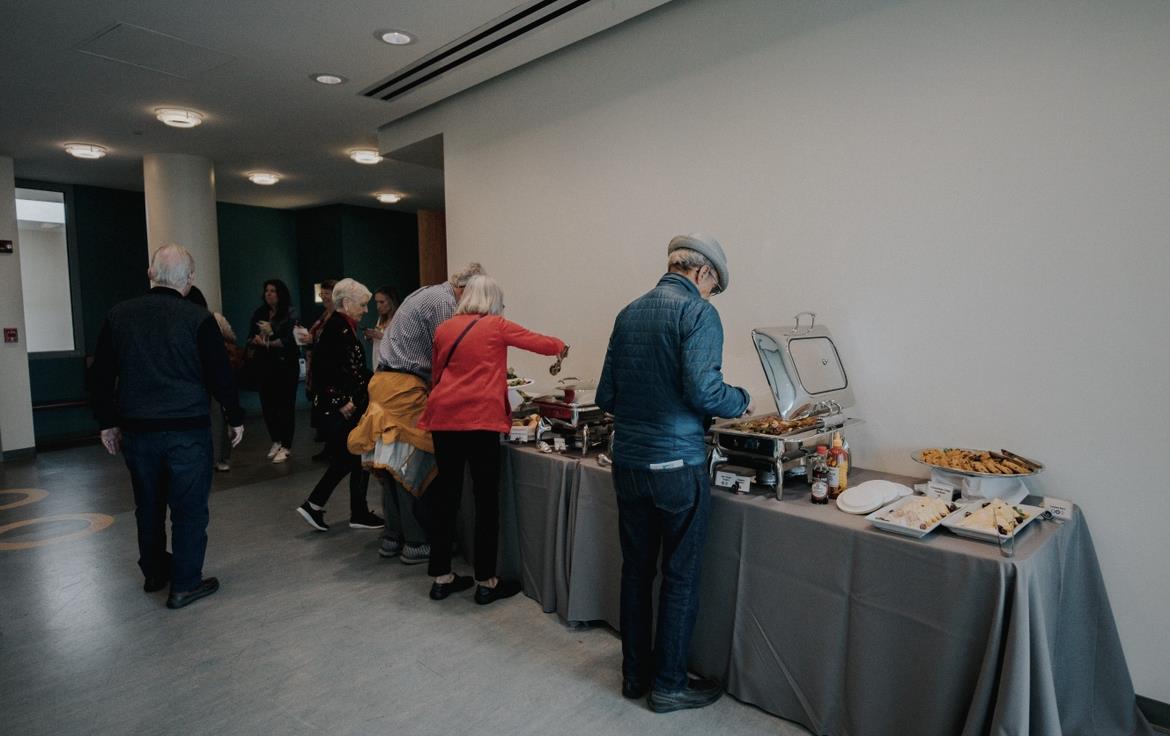
Almut introduced Dr. Biehl and gave a brief bio- he runs 40 graduate school programs at UCSC, is a professor of anthropology with several published works and has been focusing on researching climate change via archaeology and museum artifacts.
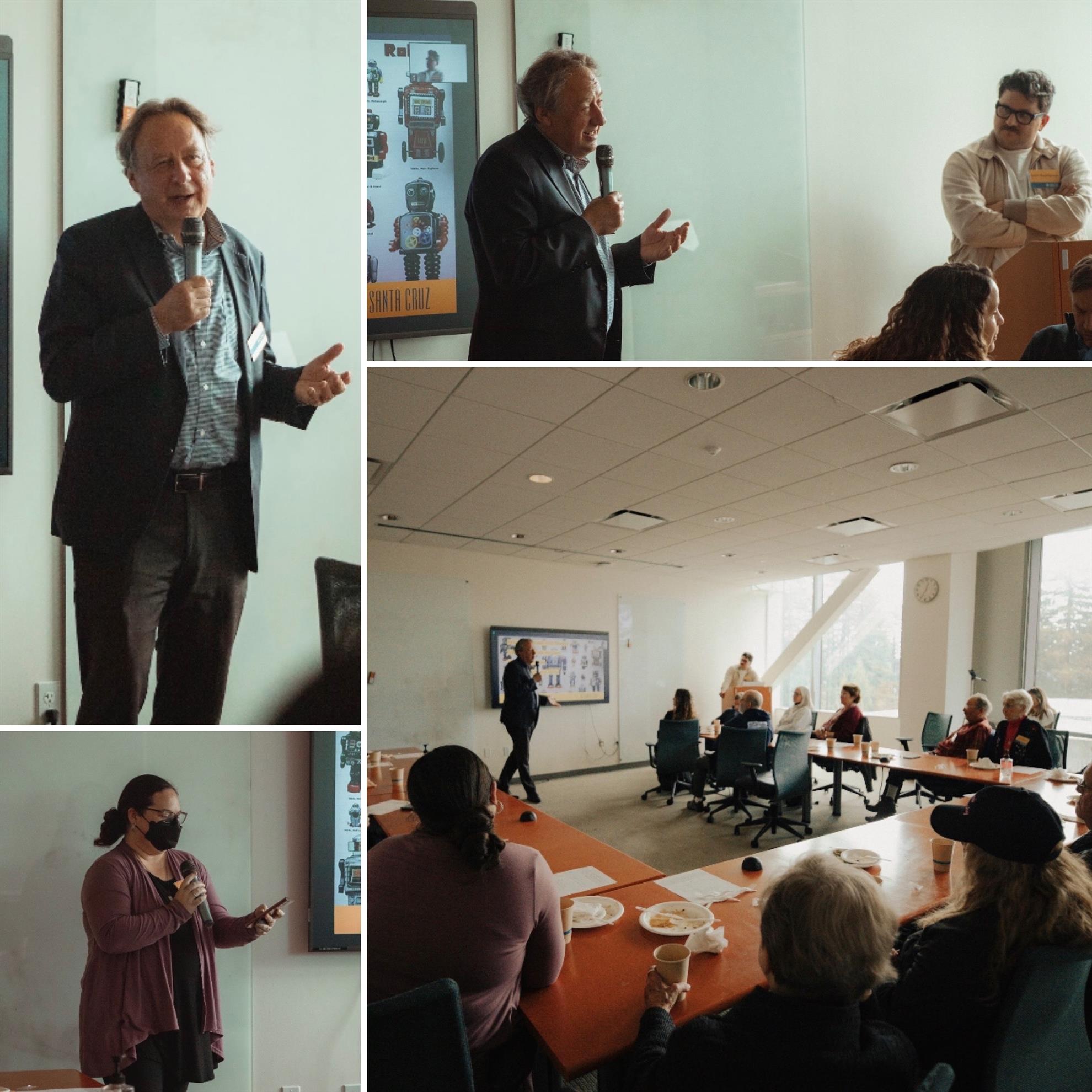
Dr. Biehl thanked us for our scholarship money and spoke about his goals of increasing diversity in graduate studies and UCSC's cutting-edge teaching and learning philosophy.
He also got a shot in against your author by noting that the day before, UCSC and Stanford both had power outages and while Stanford canceled its finals, UCSC mustered through. During the question and answer session he discussed the recently-approved 3,000 person new housing development for UCSC.

Our scholarship recipient Kevin Weatherwax is a PHD student. He is a Santa Cruz native and lives with his wife and daughter in Beach Flats. He did a remarkable presentation about his robotics project which is developing ways for robots to learn and collaborate with humans. He discussed the subtle ways, for example, in which humans walking towards each other on a sidewalk give each other nonverbal cues to avoid bumping into each other, and how he and his team are figuring out ways to teach that to robots as part of a grander plan to improve robots' ability to learn from humans, and as a corollary, better ways for humans to teach robots to learn. The ultimate goal is to have the interaction of robots and humans to be collaborative rather than humans being in charge. (Hopefully without getting to I Robot or Terminator scenarios).
Dr. Art asked how a robot is rewarded for giving correct answers. Not with a cookie.....
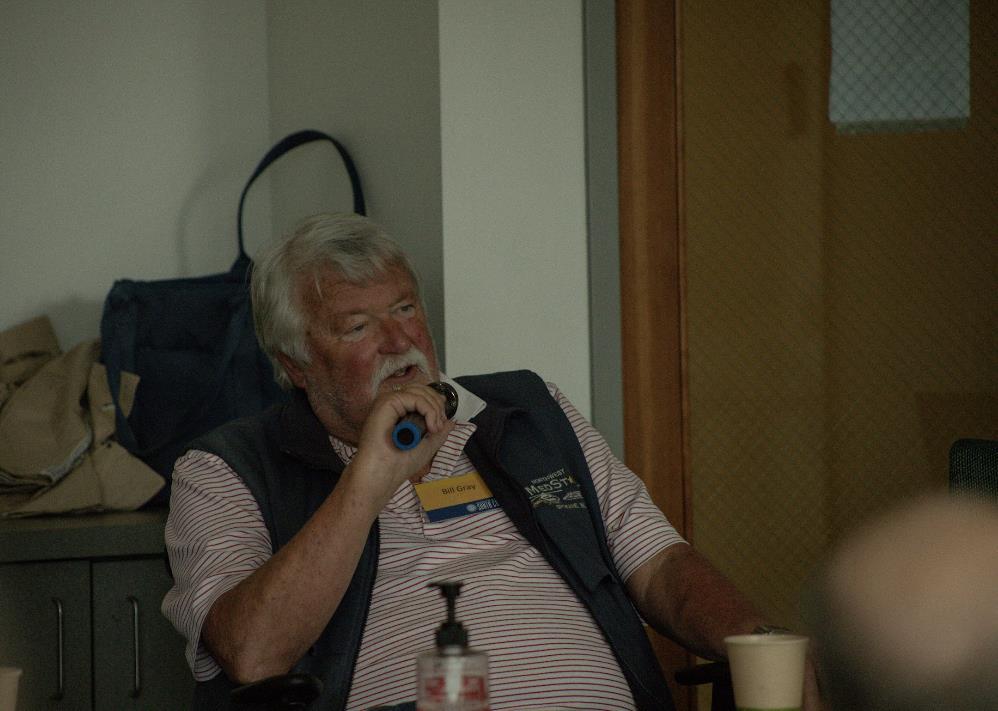
Bill Gray raised a question that was probably on most people's mind- how intrusive could this technology become? We already have Alexa listening in on us. Kevin responded that there is a need to be mindful of the impacts of the technology. And while he and the people he works with are aware of those ethical considerations, it is troubling that big industry has, for example, been commodifying people's data without their consent and not for the public good and there is little oversight or recourse.
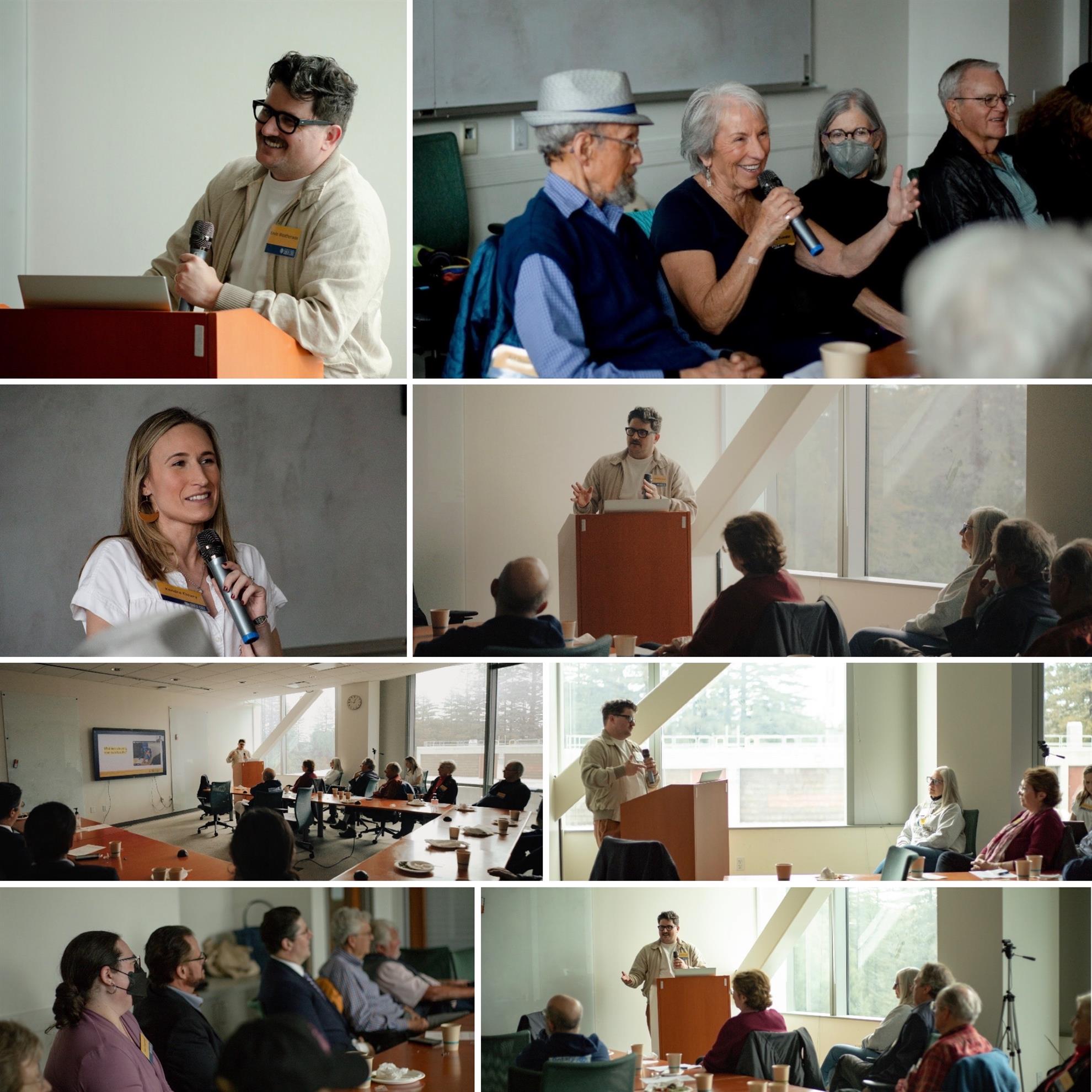
It was clear to all that our scholarship went to a very-deserving recipient by the end of his presentation. His work is truly remarkable. But perhaps what sealed the deal was his answer to Kendra's question: what would his headline moment be? Instead of talking about his work achievements, he said that thanks to our money he was able to continue his work and send his 7 year old daughter to school.
